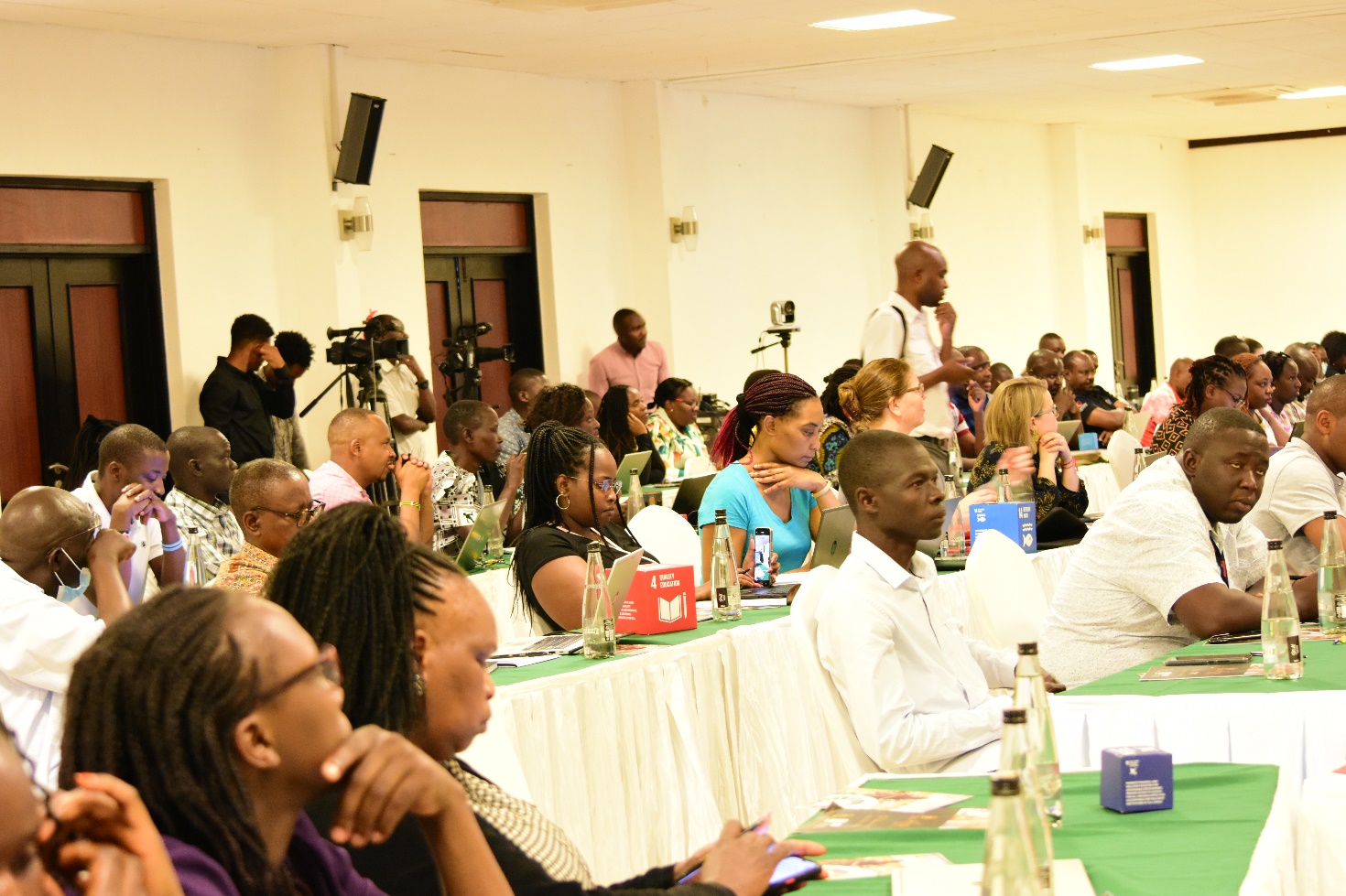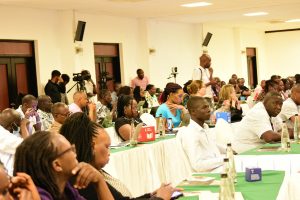
Kenya’s annual national sustainable development multi-stakeholder conference, SDGs National Multi-Stakeholders Conference was organized in Mombasa at the beginning of December for the fifth time. In the three-day conference, actors from different sectors of society assessed the effects of successive crises on the realization of the goals of sustainable development in the last decade of Agenda 2030.

Photo: SDG Kenya Forum, December 2022
Several successive global and local crises have made the crisis resilience of sub-Saharan countries even more vulnerable. The COVID19 pandemic that started in 2020, the Russian war of aggression in Ukraine that started in the spring of 2022, as well as extreme droughts and pest locusts have also tested Kenya and slowed down the promotion of the goals of sustainable development comprehensively as resources are allocated to minimizing the effects of crises and recovering.
At the Kenyan National Sustainable Development Conference (SDGs National Multi-Stakeholders Conference) organized at the beginning of December, various players in society gathered to share information and experiences as well as proposed solutions to achieve the goals of sustainable development. Among the participants are representatives of the Kenyan administration, non-governmental organizations, UN officials, university researchers, media and company representatives. The project team of the UN Association of Finland also participated in the conference together with Tanzania Sustainable Development Platform.
Mixed results in achieving Agenda 2030
The main theme of the conference was correcting the direction of sustainable development and accelerating the goals after several crises. Even in Kenya, there is not enough momentum to achieve the goals of sustainable development by 2030. Kenya’s Voluntary National Reports and the UN Agenda 2030 annual reports show that the country’s development has been slow or even reversed for some goals.
Photo: Sustainable Development Report 2022, sdgindex.org.

Especially for goals 1, 2, 3, 6, 8, 11, 15, 16 and 17, development is too slow or stagnant. Background factors include, in addition to the corona pandemic, e.g. climate change and significant regional differences in the distribution of resources, which can be seen as inequality in healthcare, food security, water supply, and urban development. The realization of peace and security goal 16 and partnership goal 17 is affected by the weak security situation in Kenya’s northern provinces, the lack of law enforcement, corruption and the country’s weak tax collection. Despite the challenges, positive developments are also noticeable. Kenya is on track to achieve goals 12 and 13 on sustainable consumption and climate action.
How to correct the direction of development and speed up actions?
At the conference, sustainable development strategy was presented, which is a key tool of the Kenyan Ministry of Planning and State Finance to accelerate development and mainstream Agenda 2030 in the country’s politics by 2030. Kenya’s new strategy guides all government actions to implement sustainable development and aims for structural change by setting three main goals:
- structural change of the economy in order to achieve a versatile, competitive and sustainable economy (Goals 7, 8 and 9),
- developing coordination mechanisms to reduce social inequality and ensure equal opportunities between generations, taking into account marginalized population groups (Goals 1, 2, 3, 4, 5, 6, 10 and 16),
- combating climate change, mobilizing green finance, recovering from the corona pandemic and green growth (Goals 11-15, 17).
The monitoring of the implementation of the strategy is supported by the website published at the conference, which contains information on the mechanisms of participation, the SDG data bank, guidelines, reports and a comprehensive overview of Kenya’s sustainable development activities and the status of the goals. In addition, it transparently explains the structure of the administration’s guidance and the areas of responsibility of the various actors.
The data needed to monitor the goals is still partly incomplete. The information produced by surveys and censuses is partly out of date, it is not consistent and it is not sufficiently disaggregated, i.e. broken down, to ensure a reliable assessment. However, the Kenyan government and its subordinate National Statistics Center have taken significant development steps by developing standardized guidelines for producing citizen-generated data for SDG monitoring. In the future, the data collected by the organizations can be used in policy planning and used as part of Kenya’s official SDG monitoring. Of the 267 indicators of sustainable development, it is already possible to monitor more than 144 in a disaggregated manner.
Accelerate SDGs through supporting the diversification of data in East Africa
The UN Association of Finland, together with the UN Associations of Tanzania and Uganda and Kenya’s SDG Forum, support NGOs in better disaggregation of the data they produce. In the Accelerate SDGs in East Africa Phase II project, consultations are organized with marginalized groups, so that their views on development can spread more widely to the consciousness of the duty bearers, both in non-governmental organizations and at the government level. The goal is to increase the versatility of the information produced by non-governmental organizations and especially to strengthen the visibility of topics that do not receive enough attention.
The project also carries out advocacy work to increase the acceptability of information produced by non-governmental organizations in the administration. Of the project’s partner countries, Kenya is the only one where data produced by citizens and organizations is accepted as part of the official national monitoring of sustainable development. There is still a need for additional work in Tanzania and Uganda. The administration does not accept data produced at the grassroots level as part of national monitoring, even though it is often at the local level that the results of development and the effectiveness of actions can be better assessed. Administration data is often based on budgeting, which does not necessarily indicate results. Tanzania and Uganda will next report to the UN on the implementation of the sustainable development goals at the high-level political forum, HLPF, to be organized in the summer of 2023. The advocacy with non-governmental organizations has already started.
